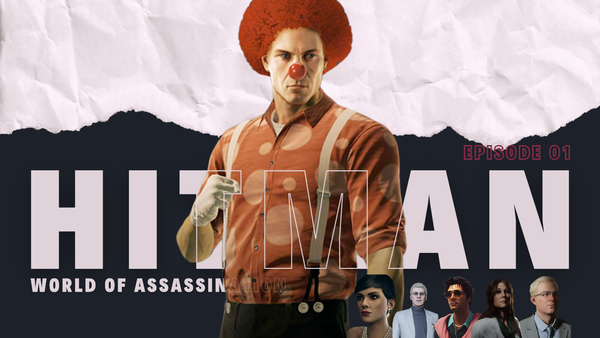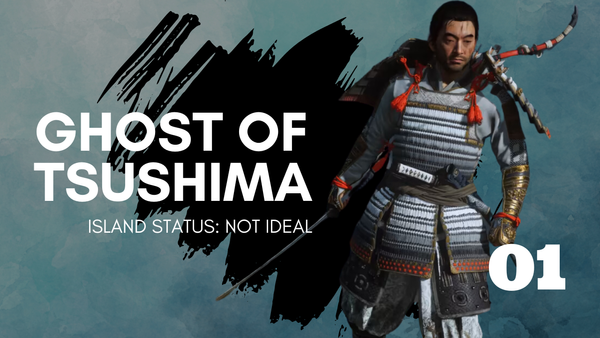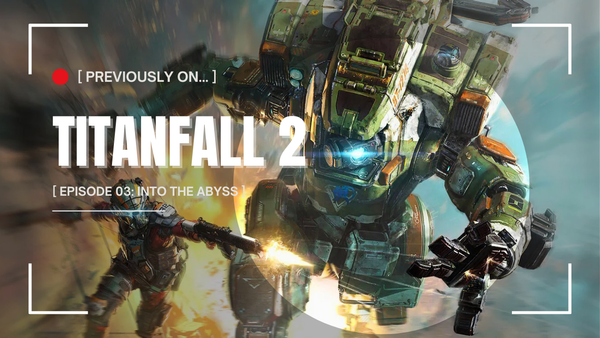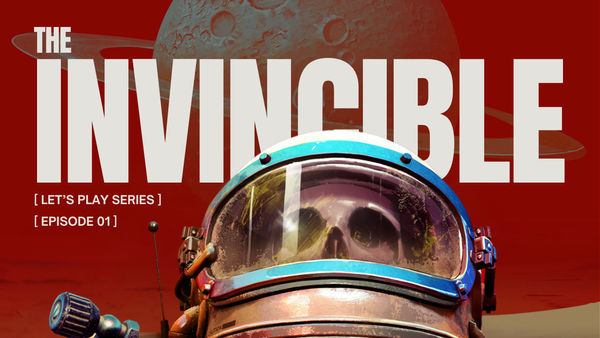007: SPECTRE | Review
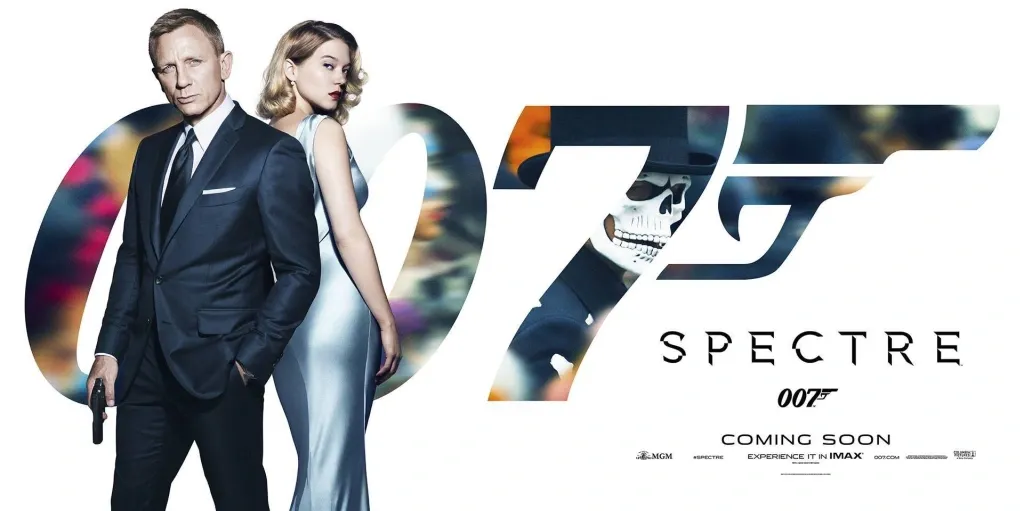
James Bond is back. Three years after the veritable anniversary smash hit that was Skyfall, director Sam Mendes gives us Spectre.
Here's what I thought of Spectre in a nutshell:
It's a fantastic James Bond movie, it shows the franchise adapting to a modern way of storytelling. It introduces repercussions and consequences into a narrative previously devoid of actual development. But it also fails to deliver on the big villain reveal, leaving the most hyped and most anticipated aspect of its story lacking and kinda… underwhelming.
How Spectre picks up where Skyfall left off
Spectre, much as Skyfall was, is a story about family. Skyfall led James back to his home way up in Scotland, making his last stand with only Kincade, the gamekeeper, and M by his side; winning the battle against Silva but losing his surrogate mother figure in the same breath. By the end of the movie, I was tempted into thinking that the reboot was now complete: we had Mallory as the new M, we had Eve Moneymeny, we had Bill Tanner, and a new Quartermaster. The gang had reassembled, as per, and now business would go on as usual. In a way, it does, as this is the first of the new Bond movies that actually starts with the iconic barrel sequence.
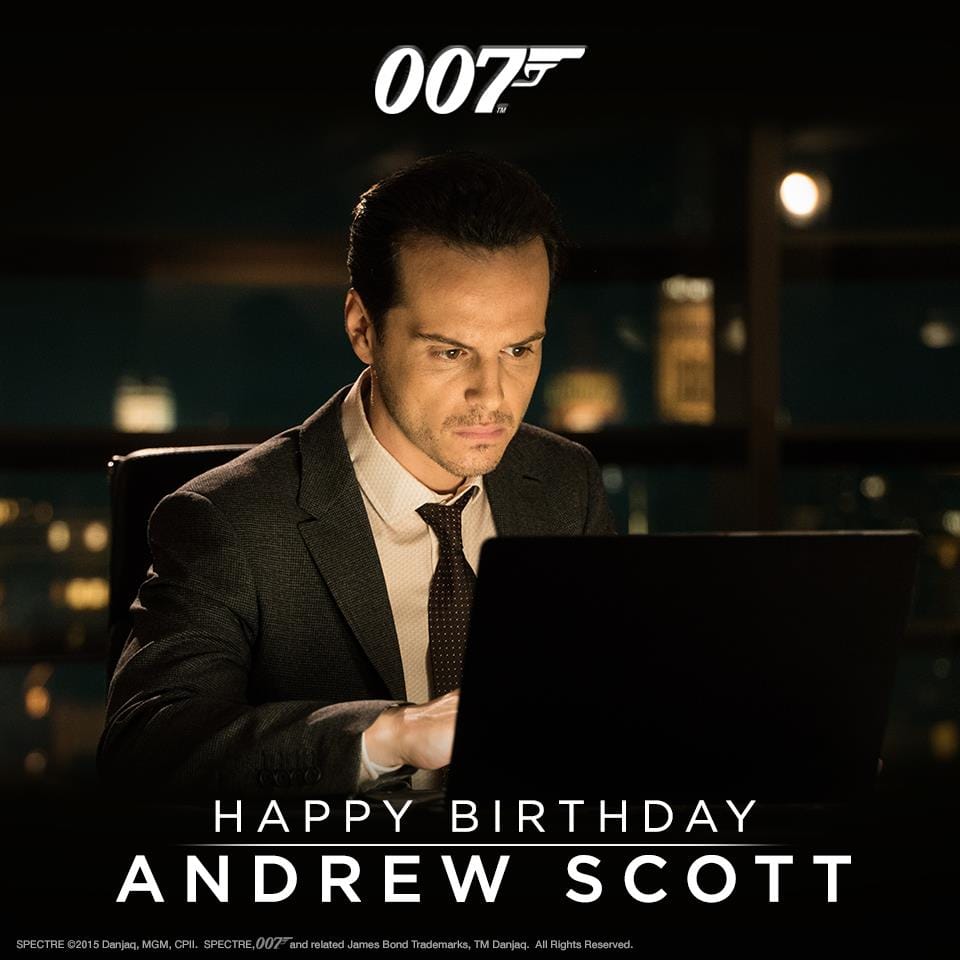
But the crisis Judi Dench's M had begun to face was far from over. Although Mallory is now on Bond's side, in Spectre, the government is making every effort to make life in the 00 section distinctly uncomfortable. Andrew Scott is taking a wonderful turn as Max Denbigh, codenamed ‘C,’ the dubious new Director-General of the Joint Security Service, merging MI–5 and MI–6 into a new intelligence unit. They want to disperse the “shadows” that 007 and his colleagues live in by making everyone “see the light,” as Denbigh quite revealingly put it — the light being an all-powerful surveillance apparatus that can tap and parse everything and anything, every morsel of information from any communications channel in the world. Goodnight, privacy.
It's funny, because this time the big villainous plan… isn't some outlandish fantasy. It's not breeding a new master race of humans up in space, like in Moonraker. Actually — it's already happening. Cispa, TTIP, Prism… it's not news. But it's telling — and pants-shittingly scary — that Bond movies are now using reality as inspiration for some proper-bonkers villain's world-domination plans. And even before Spectre: financing terrorism, an impending water crisis; those are the things James prevents in Casino Royale and Quantum of Solace. Skyfall was the first foray into two distinct ideas: a, the enemy coming from the inside; b, the enemy having a bone to pick with you because you're family. Spectre takes this one step further: the enemy is your own government. (Also, the enemy moved from mummy issues to daddy issues.) After the Cold War, the enemy wasn't just sitting behind an iron curtain anymore. Paradigms have shifted, and even though the Bond franchise has to insist that the shadows still exist in order to maintain its raison d'être, they can't ignore that. The story will have to adapt to a new political narrative. Brosnan's Bond was very 90s in its fear of the power of global media coverage and another oil crisis, but now we've landed firmly in the news division of the 21st century.
But I digress. Family. Many of the musical cues we know from Skyfall pop up in Spectre when James is thinking about family, about being isolated and having no-one to turn to except a select few who are willing to risk their necks for him. I wrote in my Skyfall review how it's obvious that James thinks of MI–6 as his family, and that it's amazing to actually see him in the midst of that office community, walking through the rows of desks, people who know him all around him — people we've never actually seen save for a few lab coats when Bond collects his gadgets from Q. And in Spectre, we see less of that office, but we see a lot more of M, Eve, Tanner, and Q past the exposition after the title sequence. They crop up throughout the movie, fighting their own, mostly political, battles to provide context for Bond's own mission. They're not just background noise this time — without them, the movie wouldn't have worked. Without them, Bond would have died long before getting to Westminster Bridge.
The 00 programme disbanded, the four of them join James in the field during the movie's final act in London, running their own mission to prevent the surveillance system from going live and helping Bond apprehending Blofeld. They're not just sitting around, waiting until either Bond or the cows come home, they're getting a piece of the action, and I loved that. It reinforces the understanding that Bond has a support system, has people he can rely on. It would have been a crime not to put a supporting cast like this to good use and actually give them something to do. Again, Bond returns to London, this time to finish what was started all those years ago in Casino Royale.
A (for Bond) new way of storytelling
That's the other thing — used to be, the Bond movies were pretty much standalones. The only times where any context from previous films was necessary was when they couldn't hold back on the silly in-jokes in Q's lab. Or at Tracy's grave, at least. But now, the narrative spans an arc all the way from Casino Royale to Spectre. Whether it's a terribly good one, we can argue about later, but at least it's happening. Finally, we're getting a sense that the decision James makes might actually affect him further down the line, even if the pay-off is nine years in the making. Additionally, even though we know James will go on wreaking havoc for as long as there's breath in him, there's finally a sense of consequence to his actions. Not that he can't circumvent his suspension by M, he's not just getting a slap on the wrist after Mexico City. It's impressed on him that his actions are further endangering the 00 section as a whole, both Q and Moneypenny's careers are in jeopardy after helping him disappear. What James does is now actually causing ripples that extend further than his own sorry arse, is what I'm saying. It's not just him against the world anymore now.
It starts with the credit sequence, which is incredibly different from any we've seen so far. It's almost like a ‘Previously on…’ reel, with actually footage from the previous films spliced with the animations, images of Silva, Le Chiffre, Dominic Green, M, and Vesper. (Notably, both Camille and Severine are missing from any of the enumerations of past acquaintances. Camille, because Bond didn't have to save her, she saved herself, and because the writers' treatment of Severine was bloody atrocious.) The people he's met, the ones he's lost, and the decisions he's made all have an impact on how Spectre unfolds, and that's pretty amazing, for a Bond movie. I've actually had to tell people, ‘Don't watch Spectre if you haven't seen Skyfall, it won't make sense.’ That's wild.
The thing about rebooting 007 is that you never really start fresh. As such, what Daniel Craig has said is true: as long as you remain true to the character of the series, everything else is on the table. In translation: long as it's still recognisably a Bond story, you can still try new things and try to move the legacy forward. ‘Push the envelope,’ as they say. As such, you can never quite separate Daniel's Bond from the old series. They're still connected, and since so many people who are watching now are very familiar with the old films, no matter that they came out long before the majority of today's fans were born, there are a lot of expectations tied to these characters and famous story beats. Unless you've really never seen any of the old movies, your reception of these new stories is filtered through the context of the franchise as a whole. It's inevitable, and I think that's why I sometimes forget that this is an origin story, that this is the making of James Bond. But it is, and he's come from an inexperienced, and in some ways naive young agent to the old dog he is now.
But the old dog's still got teeth.
James' MI-6 family — M, Q, Eve, and Tanner
Things at MI–6 are hairy — and Mallory is majorly pissed. At 007, at C, at the government. At first, he doesn't want to help James (albeit protecting him by telling Q to delete all the Smart Blood files). I'm still not entirely sure what makes him change his mind; perhaps it was just that big-ass explosion in the middle of the Moroccan desert and the realisation that he might as well help him finish it now. What I like is that he's more angry at C for spying on his agents than at Q and Eve for going behind his back and helping James cover his tracks. They're in trouble, sure, but not necessarily with him, even if he does want Q's balls for Christmas decorations. I think it's more because in this current climate, he can't protect them. In Skyfall, he answers Q's anxious question, ‘What if the PM finds out?’ with a quip — ‘Then we're all buggered.’ He doesn't this time, he can't afford to.
Rory Kinnear still doesn't get quite as much to do in his role as Tanner, despite briefing James and being the living connection between the new HQ and Q's lab. Naomie Harris' Eve thankfully gets a bit of a home life — and one that doesn't imply she'd much rather be James' girlfriend. And apparently, she's not just M's secretary, but working as a researcher as well, which sort of makes up for her not working in the field anymore. (A friend pointed out that Naomie may have been pregnant during principal photography, which would explain the big coats and why she's sitting down a lot and not driving the car, even though she's probably a much more capable driver than Tanner. Sorry, Bill, but you're Chief of Staff.)
But, now. Q. Oh, Q. The Internet is eating this boy alive, and with good reason. Nerd humour. The nerd made himself laugh.
I asked you to bring the equipment back in one piece. Not bring back one piece.
Tanner's face. Honestly, though, the scenes with Q and Bond are precious. One, because James clearly has enormous faith in his abilities (‘Q will find a way. He always does.’) and trusts him enough to ask him to help him disappear. Two, because they're physically comfortable around each other, which subverts the trope of Q as the nervous little nerd. Because he's not, he's entirely capable of handling 007, the walking killing machine, and he's entirely comfortable stepping in front of him as he's holding the new rifle prototype and taking it off his hands. And Bond doesn't even flinch. There's an obvious level of knowing exactly what the other man can do between them, and Bond respects Q — because he's the one who builds all the stuff that's kept him alive until now. Let that sink in, Bond respects the geek.
When Q says, “I really, really hate you right now,” it's so adorable, and so is the way Bond looks at him during that entire scene. When the old M said to him, ‘They'd do anything for you,’ she couldn't have known that this would one day include Quartermasters. Their interactions have an amazing undercurrent of a lot of intermingling emotions, which speaks to the fact that, in the time between Skyfall and Spectre, they've totally run dozens of missions together all around the world, with Q's voice in Bond's ear, and the boy's absolutely in love with him. (The feeling's totally mutual. Or why else would the narrative not make a point of James having Q somehow extract the Smart Blood tracker from his system. Instead, he asks for his car, which Q has had his technicians working on. In the official lab. Using government resources. Good God.)
James and the audience both get more than one blast from the past in this film. James by being confronted with old acquaintances, and we're being hit right in the feels by seeing a cruelly short video of M, recording a message for James in case she dies. She gives him the order to kill Sciarra, the man he's chasing in Mexico City, and he does it without question. Silva tried so hard to make James doubt her, but in the end he still puts his faith in her.
A quick note about info dump: what I like about this script is that information is presented to us as intrinsic to a scene. Characters who are in the know pretty much say what they would say in the situations they're in, and we're left to puzzle over that as much as Bond is. The only bigger exposition scenes are M's explanation of the merging of MI–5 and 6 at the beginning and Q showing James and Madeleine what he found out about the ring. The rest just comes in bits and pieces, until the pieces finally make sense.
Introducing the radical notion that decisions have consequences — and a new, familiar villain
The whole point of Spectre is chickens coming home to roost. Some of those are choices James has made in the past three films, others he couldn't have foreseen.
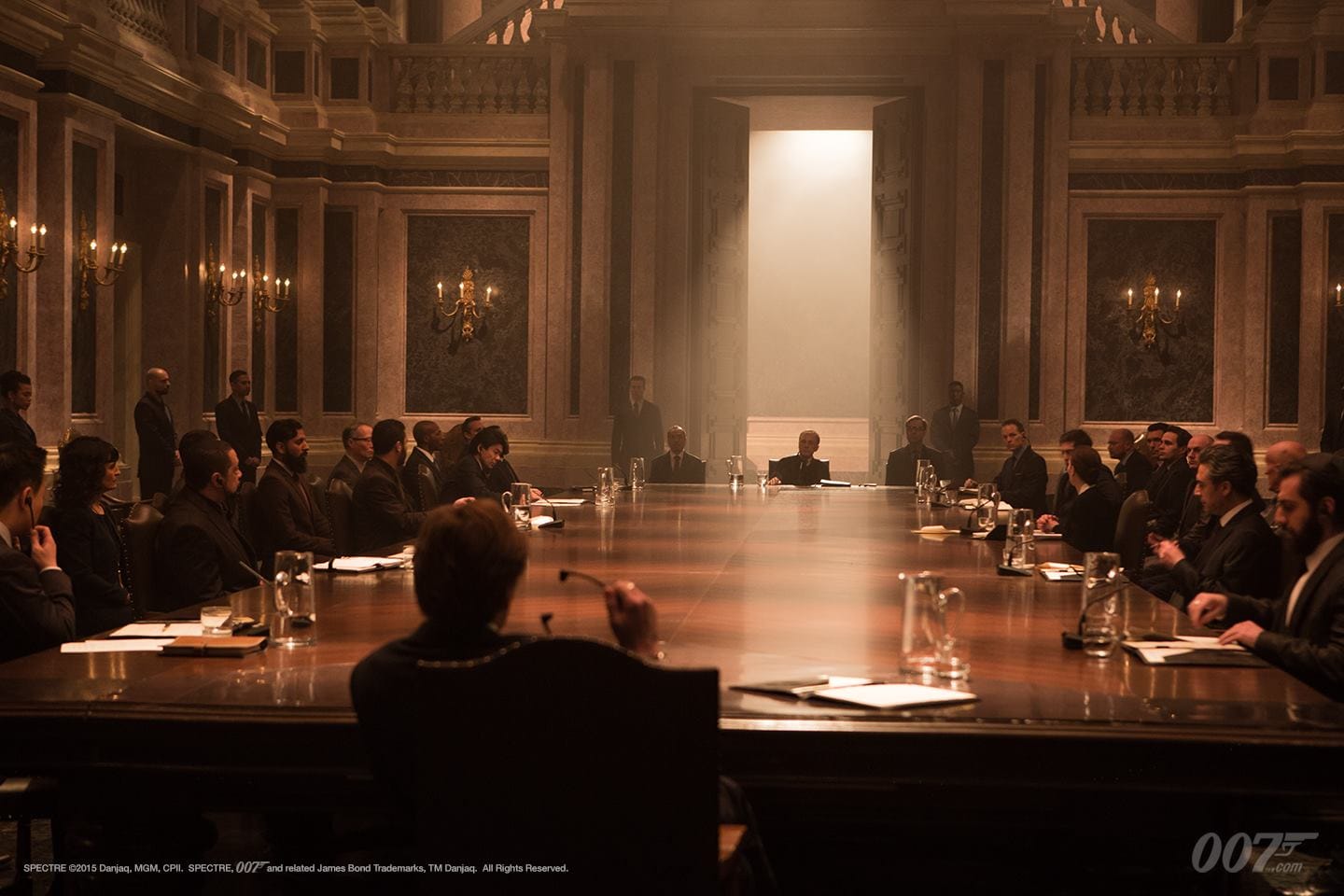
The thing is, and this is probably going to be a bit of an unpopular opinion — I'm not all that impressed with Christoph Waltz's Blofeld. Sure, he's evil and scary and the torture scene with the brain drills is the first time that I've had to close my eyes during a Bond movie. (And I often have dinner or second breakfast while watching Hannibal.) But all of Waltz's unquestionable brilliance in acting can't cover up the fact that Blofeld's character is poorly realised, and the whole basis for his villainy is the weakest link in the entire story. The scene in Rome is properly terrifying — he comes into the big hall full of villains and everyone just… hushes. The way he's sitting in shadow, the way his face is first shown when addressing James, it's very well done. But I was still far more scared of Silva than I ever was of him, because Silva was utterly unpredictable in his insanity. Skyfall, in a sense, had bigger stakes in that M's life really was in danger, and James came not only close to losing her. He did lose her. It was the first time that a Bond film killed one of the big 5, and it impressed upon the audience that no-one is safe; and it felt real because while Severine was merely fridged and used as a plot device, M's death was a real and logical result from the threat they were facing. Just once, Bond failed. He was allowed to fail. In Spectre, it would have been a mistake to repeat that same character beat.
So while Blofeld is scary, the stakes weren't the same. And, frankly, when you aim to make something “Skyfall x10,” as Daniel Craig put it, chances are you're going to bite off more than you can chew.
The thing is — Oberhauser killed his father because he was jealous. And he went after James twenty years later because he saw him as the reason he had to kill him. The cuckoo in his nest.
That's it?
And how on earth does a 17-year-old presumed-dead Austrian go on to found one of the most terrifying criminal organisations of Bond canon? There is so much there that is never explored.
Quite frankly, when I first heard speculation that Oberhauser was James' sort of foster brother from way back when, I wasn't thrilled. I thought, Let's not make this into one of those forced ‘this is all happening because of sibling rivalry’ things, because those suck. It was terrible when Wickham invented that story about Darcy cheating him out of his living because his father loved him better, it's terrible now.
There's also a fairly large plot hole in there in terms of timeline. I mean, when did Oberhauser start building SPECTRE? (Are they also really selling me Christoph Waltz as a 37-year-old? They keep saying it was 20 years ago!) Did he start after learning that James was recruited by MI–6? But surely, he could have only known about that if he'd already started SPECTRE by that point? I mean, what would he have done if James had become a librarian? Messed up the Dewey Decimal System??
For all that the Blofeld speculation was running rampant, for all that the reveal has been hyped to no end, this was… meh.
James Bond, masculinity, and women
The other big, big issue one has to talk about when reviewing any James Bond movie, but especially those of the new era, is masculinity. I've covered a lot of ground on this in my piece on the Cultural Appeal of James Bond, but I only teased at some of the developments in Spectre because I wanted to tie it in with this review. The thing is, James is having to prove that he's still relevant — on-screen and off. The meta, in that sense, has become part of the story. The Bond movies have to prove that they are still relevant, in a way, and that the writers and producers know how to adapt to today's discourse on gender issues and toxic masculinity in a way that'll save 007 from alienating half his audience. Although Skyfall was the most successful Bond movie ever, critics were vocal on the bullshit that was Severine's story line (if you can call it that), and it was clearly seen as a step back. Daniel Craig himself is fed up with people suggesting to him that James Bond is a good man, or that women should be intrigued by him. He's a misogynist, plain and simple. And the only way to counteract that, as he points out, is to surround Bond with women who don't put up with him and who put him in his place.
James Bond will always be hyper masculine in that 'cool guys don't look at explosions' way, that's not going to change. But perception is shifting from seeing him as the ideal man of danger to an incredibly flawed character who's really only a hero because he happens to be on the right side. It's moving more towards the character serving the plot, not solely the other way around, and towards the character serving other characters. He helped Camille accomplish her own mission in Quantum, without it being requisite that she help him, first (even though she does). He went after Greene, she went after General Medrano, and her trauma is treated not as a weakness, but something he is right to help her with when she's ready to let go. Severing was a huge step back in that sense, presenting her only as foil to his recovery, without him aiding in hers.
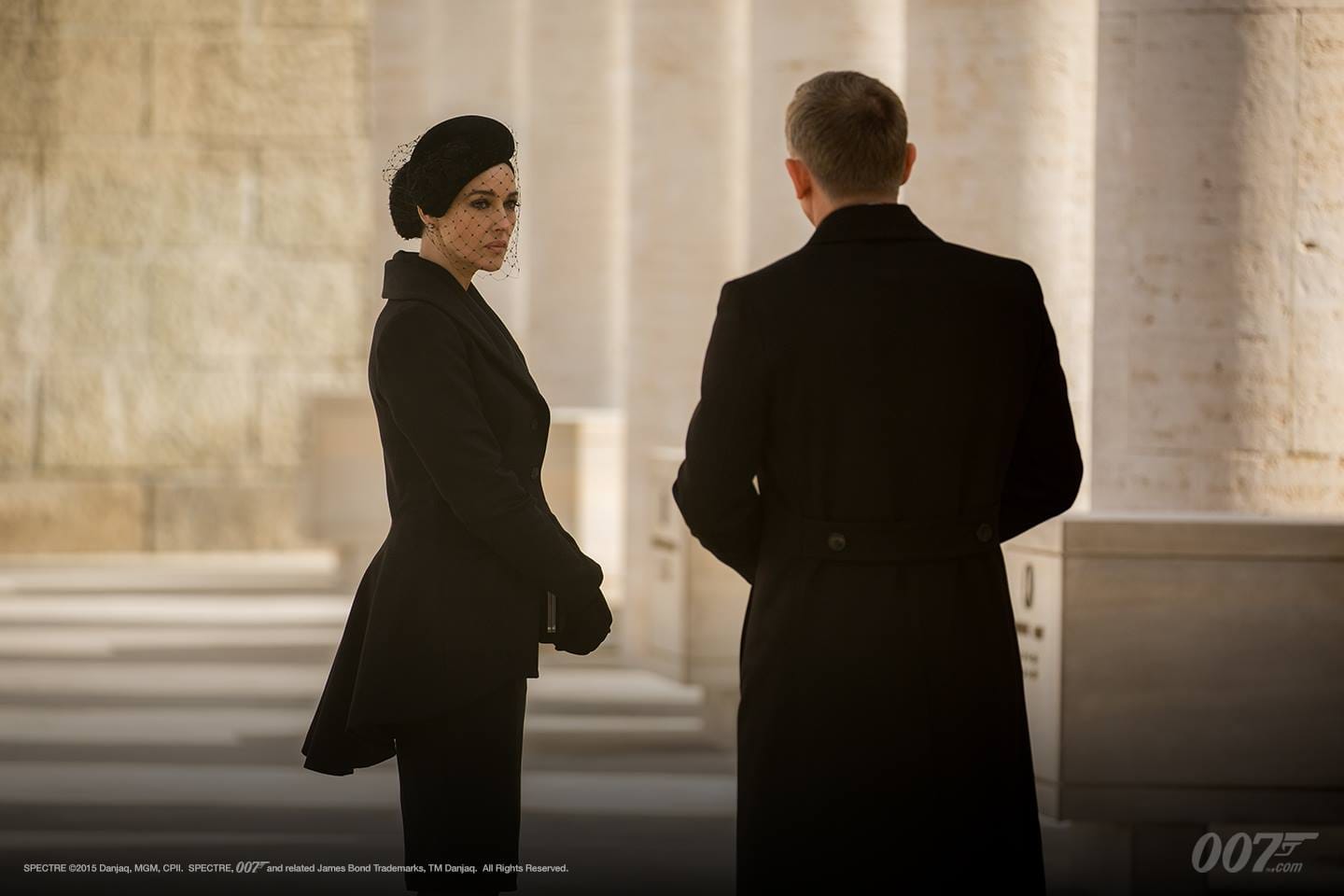
In Spectre, Bond's sex with Donna Lucia is entirely gratuitous and very early Bond. It's pointless, too, and again consent isn't entirely clear. I like that he hooks up with a woman his own age and that he doesn't use her/fuck her/leave her to die — he makes sure Felix gets her out; but that doesn't wholly balance out the old trope of Shags Her Cause He Can.
What Daniel Craig does, especially in this one, is he plays James as very straightforward, but also very vulnerable. He cares, and he's allowed to. The way he pleads with Madeleine to look at him instead of the monitors, the way he yells at Blofeld to turn off the recording of his conversation with Mr White is actually heart wrenching. He doesn't express emotions solely through anger the way most other Bonds do. He pleads. He is believably and obviously scared during the torture scene, entirely different from when Le Chiffre was scrambling his eggs. He was laughing then, he's not laughing now. The threat is viable, and it's scaring him shitless. It's the first time you actually hear James Bond scream in pain and fear, because there's nothing he can bloody do until he gets the watch primed.
But what James Bond also is in this movie: very funny! He's never smiled this much before, even if he is taking the piss half the time; sometimes even lamp shading himself. The scene with the mouse was hilarious and shows a level of actually very likable silliness that stems right from Daniel Craig's comedic timing. It's not glib or cheesy, it's just funny.
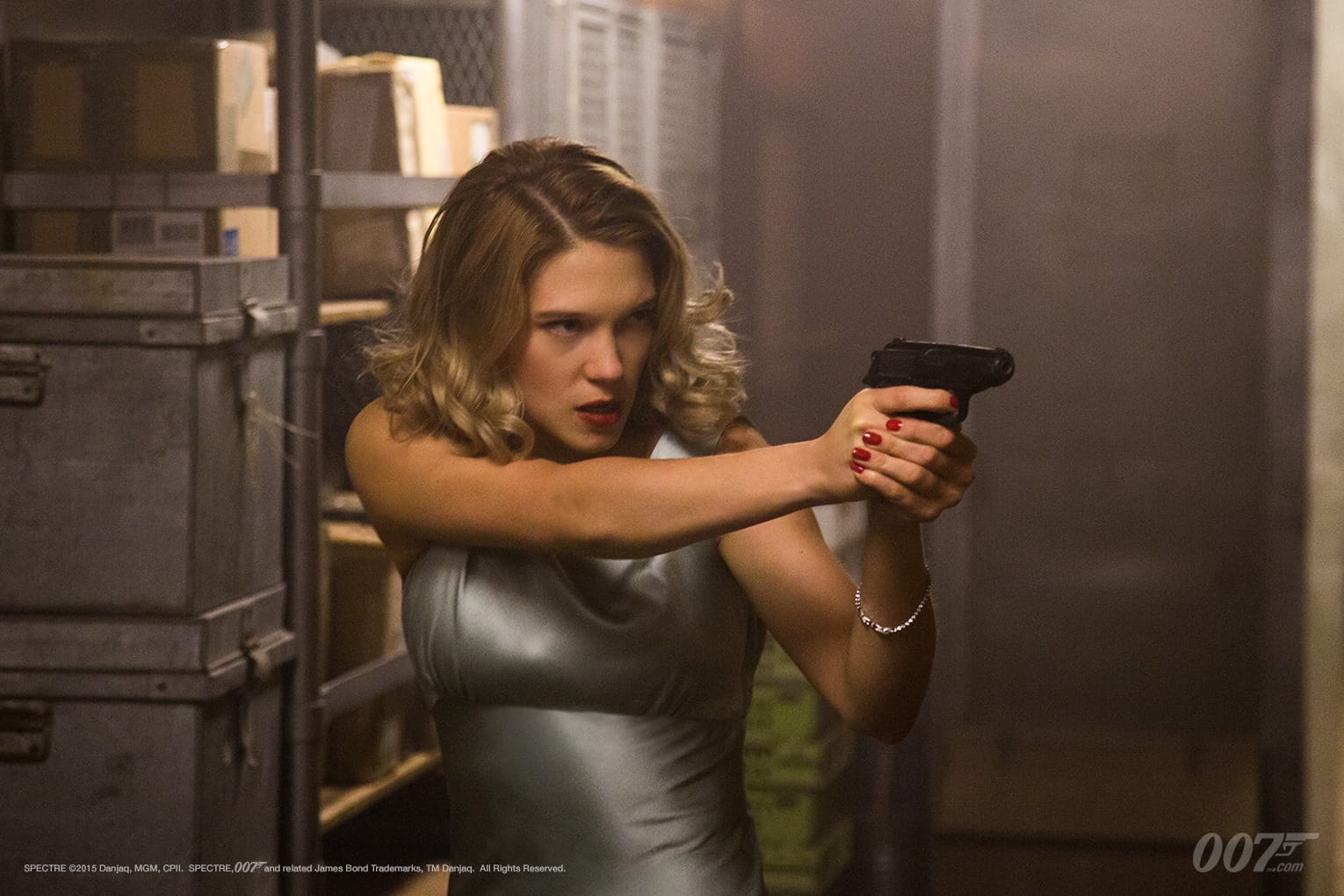
The other thing I like is that this time they don't go the manpain route while still acknowledging the fact that he's lost someone he loved. James still hurts when being reminded of Vesper, and that's probably never going to change; which is a huge change from when Bond had to kill Elektra King in The World is not Enough and then shagged Christmas Jones half a day later. He does still feel that (when he dismisses Vesper's interrogation tape as “nothing,” it's entirely clear that he's lying, and that his callousness is not to be taken at face value). And yet, he doesn't push Madeleine away because he's afraid of being hurt again.
At the same time he doesn't expect anything from her. For the Bond of Old, it was a foregone conclusion that any woman would succumb to his charm — even if she's actually a lesbian. James had this notion beaten out of him by Vesper very early on. She did end up in love with him, but he was never smug about it. Fields in Quantum fell back into that trope, being terribly angry at herself for sleeping with him as he made smartarse comments. Still, he made it a point that her bravery in helping him be mentioned in her record, he insisted that her sacrifice be honoured. That's more than can be said for Severine, who was a sad blip on his radar and was the Skyfall writers' biggest mistake. Camille, as I said above, was as close to Bond's equal as Quantum let her come, with her own mission of revenge, and no romantic entanglement with Bond. They're both beaten souls, and James knows to stay away, doesn't even try.
Now, Madeleine… he lets himself care, and he lets himself fall in love. He doesn't even seem to fight it, doesn't try to send her home because she'll distract him or any of that crap. He wants her to go home so she'll be safe and because she's helped him as far as they bargained for, but not for his sake; and he doesn't argue long when she insists she's coming along, that she has a right to know what happened to her father. Still, he doesn't put the moves on her at L'Americain, or before that. He seeks her out because he made a deal, and that makes her part of his mission. There may be a momentary spark between them as he catches her as she's drunk, but he doesn't move an inch. She rebuffs him preemptively, tells him to sit down, and that's what he does. And then, later, when she does sleep with him, there's no afterglow scene with him being smug about it. The fact that they have to shag at all and that she magically falls in love with him is familiar in its sketchiness, the fact that they couldn't do without the romantic subplot is as well. But the kiss he shares with her on Westminster Bridge isn't the usual tacked-on post-mission romp. It's a reward that he earned.
But the devil is in the details: Madeleine is referred to throughout as Dr Swann, using her proper title, leaving the Mister Bond to James. She's not a clone of Camille, either, who raised herself into a life of danger — it's not seen as a weakness that Madeleine is scared of what she'll find in the desert, of what she'll find out about her father and what drove him to leave SPECTRE. She's not the usual unwitting ally who James roped into helping him by seducing her, she's not involved in ways like former Bond companions were — fellow agents, scientists, mistresses etc. She's a bit outside of it all, even though she knows her way around, because that's precisely why she doesn't want anything to do with that world. When Bond realises that there is nothing he has to teach her, that's a defining moment for her character. It's a pity that, after she finds out what happened to her father, the writers sort of stop letting her contribute to the plot.
Interestingly, though, as she moves from part of the mission to love interest, there's never a sense of her giving up that part of herself. It doesn't become about her being willing to do anything to help James — even if she does love him. When they're in London, she decides to leave, in spite of her feelings. She wants nothing to do with that life, and she doesn't feel compelled to change her mind; because she knows James will never change. And he doesn't argue. Doesn't promise her anything to get her to stay, he lets her go.
Of course, this is then all dashed to pieces when the writers completely ruin it by making her the damsel in distress. Argh! They could have let her walk away, to perhaps come back in another movie, let her keep that air of mystery as to what more she knows, and that independence of not being part of Bond's world, by choice. But nooo, they had to have her kidnapped and used as bait. I hate that trope. I hate it so much. The fact remains that, even though Madeleine is a welcome addition to the franchise (and, I hope, one that will last), the Bond franchise is a difficult place for female characters to navigate and come out of it well-written.
The ending that he gets with Madeleine is the ending he never got to have with Vesper. The parallels and echoes are clear: they have dinner on a train, James met Vesper on the train to Montenegro. They talk about why he does what he does, and what would happen if he stopped to think about it. If he stopped, period. I loved the undercurrent of, ‘Just this once, loving someone didn't doom them. Or him.’
The only problem now is: we know Bond will return. I'm just hoping they won't do it by having Madeleine killed and providing fodder for another revenge mission. I don't think I could take it.
All in all, I do love this movie. I think it's continuing the franchise in the right direction, both in terms of James' character and in terms of serialised storytelling. I love the notions of family that tie him to MI–6, I love that he lets himself be happy at the end. I'm scared what they'll do to take that happiness away from him to make him come back to work.

